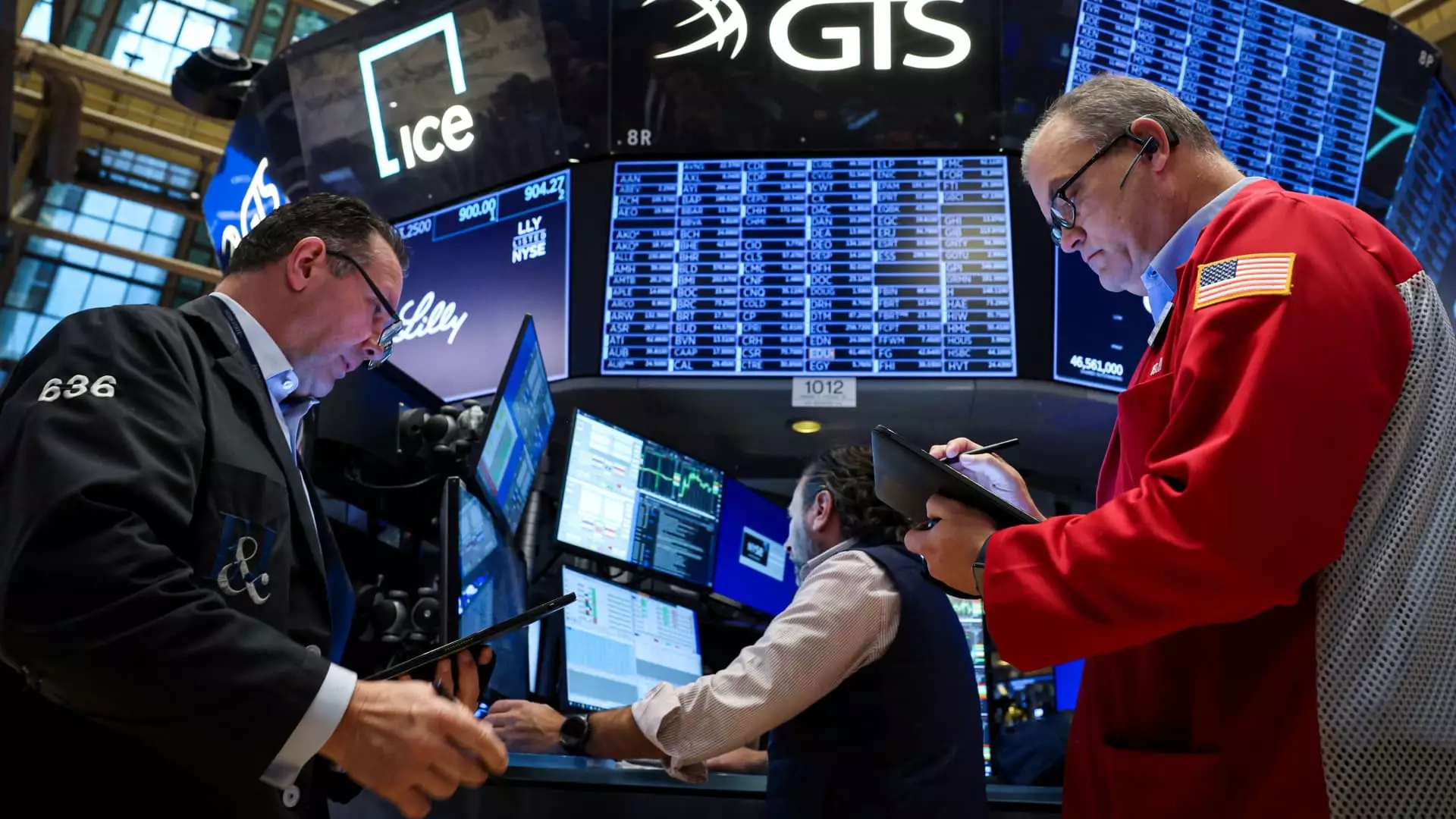As the U.S. presidential election looms closer, voter sentiments and uncertainties significantly shake investor confidence. Recent market trends are a testament to this jittery atmosphere. The Dow Jones Industrial Average recently recorded its most substantial single-day decline in months, plummeting by over 400 points and highlighting the heightened volatility investors are grappling with. Jordan Jackson, a prominent strategist from J.P. Morgan Asset Management, encapsulates this sentiment succinctly by noting that the electoral climate is likely to lead to increased market fluctuations. As we inch closer to election day, it’s evident that both investors and the broader financial market are experiencing a rollercoaster of emotions.
The American electorate is bracing for a consequential voting period, and this anxiety seeps into the investment landscape. Recent surveys reveal that a considerable 72% of American investors express trepidation regarding the upcoming election. Such widespread concern suggests that uncertainties about political outcomes can swiftly influence market behavior. Analyzing historical election cycles demonstrates that volatility before elections is not a new phenomenon. However, typical patterns show a rebound in markets post-election, suggesting a potential recovery for anxious investors.
Despite current market fluctuations, Jackson emphasizes that there are many reasons for cautious optimism. He foresees other potential interest rate cuts by the Federal Reserve, contingent upon favorable inflation metrics. This insight indicates a proactive approach toward economic stability, notably with the year-on-year Consumer Price Index (CPI) inflation now at 2.4%, a substantial dip from the previous peaks witnessed in mid-2022. Such downward trends in inflation are optimal for fostering a healthier economic climate and reassuring nervous investors.
In addition to promising macroeconomic indicators, corporate fundamentals are reaffirming a positive outlook. Jackson points to strong earnings results, suggesting that businesses are operating with resilience amid challenging conditions. Nonetheless, he warns against overreacting to the political rhetoric permeating campaign trails, advising that sector-specific bets might not deliver the anticipated returns. Maintaining a level-headed approach while analyzing company fundamentals remains essential for investors who are committed to long-term strategies.
Consumer behavior also remains crucial in these tumultuous times. Despite rising wage levels and low unemployment rates, the longer-term impacts of price pressures appear to necessitate a gradual adjustment for consumers. Jackson asserts that as the upcoming year unfolds, many consumers are likely to regain confidence in their spending capabilities, which is encouraging for both the economy and the markets. This renewed consumer confidence may serve as a vital catalyst for economic recovery, potentially eliminating the clouds of uncertainty currently looming over investors.
While the U.S. election creates immediate flurries of concern within the markets, historical patterns and evolving economic indicators suggest that resilience may ultimately prevail. Investors would do well to remain steadfast and take a long-term view amidst the current turbulence.

